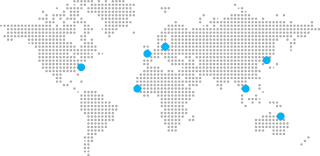
In an era characterized by rapid technological advancements, it comes as no surprise that the healthcare industry is undergoing a remarkable transformation. From revolutionary diagnostic tools to personalized treatment plans, technology has become the cornerstone of modern healthcare, promising to shape the future in ways that were once thought impossible. In this article, we delve into the multifaceted ways in which technology is reshaping the landscape of healthcare and redefining the possibilities for patient care, medical professionals, and the overall wellbeing of society.
1. Precision Diagnosis and Early Detection
One of the most significant contributions of technology to healthcare is in the realm of precision diagnosis and early detection. Traditional diagnostic methods often required invasive procedures, time-consuming laboratory tests, and the interpretation of complex data by human experts. With the advent of advanced imaging techniques, artificial intelligence (AI), and data analytics, healthcare professionals can now obtain accurate and timely information about a patient’s condition.
Medical imaging technologies, such as MRI, CT scans, and PET scans, have become pivotal in detecting diseases and anomalies in their early stages. These non-invasive methods provide detailed insights into the internal structures of the body, enabling doctors to identify and treat conditions before they progress to more critical stages.
Additionally, AI-powered algorithms analyze vast datasets to identify subtle patterns that might not be noticeable to the human eye. This has led to breakthroughs in diagnosing diseases like cancer, where AI can detect minute irregularities in medical images, facilitating earlier intervention and improving patient outcomes.
2. Personalized Treatment Plans
No two individuals are exactly alike, and the same principle applies to healthcare. Technology has ushered in an era of personalized medicine, where treatment plans are tailored to a patient’s unique genetic makeup, medical history, and lifestyle factors. This approach maximizes the effectiveness of treatments while minimizing adverse side effects.
Genomic sequencing, once a costly and time-consuming endeavor, has become more accessible due to technological advancements. This has enabled healthcare providers to identify genetic predispositions to certain diseases and design targeted therapies. For example, in oncology, genetic profiling of tumors helps oncologists prescribe medications that target specific mutations, resulting in more effective treatments with fewer side effects.
3. Telemedicine and Remote Monitoring
The concept of telemedicine has gained significant traction, especially in recent times when the world faced the challenges posed by the COVID-19 pandemic. Telemedicine leverages technology to provide medical consultations, diagnoses, and even treatment plans remotely. Video conferencing, real-time chats, and virtual follow-up appointments have become integral components of modern healthcare.
Moreover, technology has enabled the development of wearable devices that monitor patients’ vital signs and health metrics outside of traditional healthcare settings. From smartwatches that track heart rate and sleep patterns to glucose monitors for diabetics, these devices empower individuals to actively manage their health and enable healthcare providers to intervene when necessary.
4. Enhanced Patient Engagement
Empowering patients to take control of their health and engage actively in their care is a central tenet of modern healthcare. Technology plays a pivotal role in fostering patient engagement through various platforms and applications.
Healthcare apps provide patients with resources to track their diet, exercise, medications, and even mental wellbeing. These apps can send reminders for medication doses, provide exercise routines, and offer insights into managing chronic conditions.
5. The Role of Artificial Intelligence
Artificial intelligence, with its capacity to process and analyze massive datasets, has become a game-changer in healthcare. AI algorithms can predict disease outbreaks, assess treatment effectiveness, and even assist in drug discovery by simulating the effects of various compounds on biological systems.
In clinical settings, AI-driven tools aid radiologists in diagnosing conditions by quickly identifying anomalies in medical images. Natural language processing (NLP) algorithms help analyze patient records, enabling doctors to make informed decisions based on historical data and trends.
6. Surgical Advancements
The field of surgery has witnessed remarkable advancements, thanks to technology. Minimally invasive surgical techniques, such as laparoscopy and robot-assisted surgery, have reduced recovery times, minimized scarring, and improved patient outcomes.
Robotic surgical systems provide surgeons with enhanced precision and dexterity, allowing them to perform complex procedures with greater accuracy. These systems are controlled by skilled surgeons and offer features like tremor reduction, 3D visualization, and real-time feedback.
7. Big Data and Predictive Analytics
The healthcare industry generates an immense volume of data daily, ranging from patient records and test results to research findings and clinical trials. Big data analytics harnesses this information to uncover insights that inform medical decisions, identify trends, and predict disease outbreaks.
Predictive analytics models can help healthcare providers anticipate patient needs, allocate resources efficiently, and identify potential health risks within specific populations. These insights are invaluable for improving preventive care strategies and public health interventions.
8. Ethical and Privacy Considerations
While the benefits of technology in healthcare are undeniable, it’s important to acknowledge the ethical and privacy considerations that accompany these advancements. As patient data becomes more digitized and shared across platforms, ensuring the security and confidentiality of personal health information is paramount. Striking a balance between data utilization for medical advancements and safeguarding individual privacy remains an ongoing challenge.
The fusion of technology and healthcare has given rise to a new era of possibilities. From precise diagnoses and personalized treatment plans to telemedicine and predictive analytics, technology is reshaping how we approach health and wellness. As these innovations continue to evolve, they hold the potential to revolutionize medical care, enhance patient outcomes, and ultimately improve the quality of life for individuals around the world. The future of healthcare is undeniably intertwined with technology, and its transformative influence is only just beginning.

